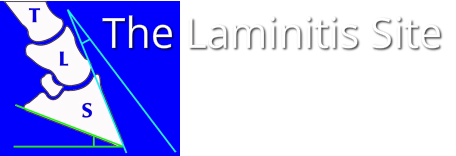Slowing Feed Intake Reduces Glycemic Response in Horses - Kentucky Equine Research - August 2013
Nothing new here, but a reminder that feeds should be as spread out as possible through the day to avoid glucose and therefore insulin peaks. Horses with laminitis/EMS/PPID shouldn't (generally) be fed any form of cereal/grain - recommendations are to keep NSC (non-structural carbohydrates, that's sugar, starch and fructan) below 10% for insulin resistant horses. Average NSC for cereals: bran 29%, oats 48%, barley 59% and maize/corn 73% (figures averages from Equi-Analytical common feed profiles http://www.equi-analytical.com/CommonFeedProfiles/). Many horse are now working at higher levels on a high fibre diet based on hay, haylage, grass, sugar beet, alfalfa, with minerals, vitamins, protein and essential fatty acids supplemented according to forage analysis. Insulin resistant horses generally do well on diets based on hay, either analysed <10% or soaked to reduce sugar, plus sugar beet (ideally rinsed/soaked/rinsed to remove excess iron and sugar) to carry minerals and for weight gain/additional energy if required.
More ideas for slowing eating and general management strategies for insulin resistant horses:
http://www.thelaminitissite.org/management-strategies-for-emsir.html
Nothing new here, but a reminder that feeds should be as spread out as possible through the day to avoid glucose and therefore insulin peaks. Horses with laminitis/EMS/PPID shouldn't (generally) be fed any form of cereal/grain - recommendations are to keep NSC (non-structural carbohydrates, that's sugar, starch and fructan) below 10% for insulin resistant horses. Average NSC for cereals: bran 29%, oats 48%, barley 59% and maize/corn 73% (figures averages from Equi-Analytical common feed profiles http://www.equi-analytical.com/CommonFeedProfiles/). Many horse are now working at higher levels on a high fibre diet based on hay, haylage, grass, sugar beet, alfalfa, with minerals, vitamins, protein and essential fatty acids supplemented according to forage analysis. Insulin resistant horses generally do well on diets based on hay, either analysed <10% or soaked to reduce sugar, plus sugar beet (ideally rinsed/soaked/rinsed to remove excess iron and sugar) to carry minerals and for weight gain/additional energy if required.
More ideas for slowing eating and general management strategies for insulin resistant horses:
http://www.thelaminitissite.org/management-strategies-for-emsir.html

 RSS Feed
RSS Feed